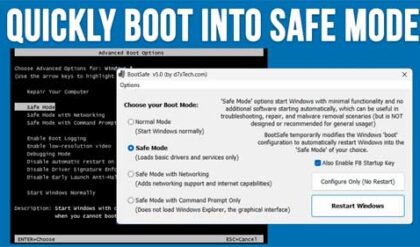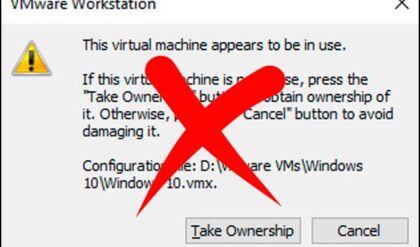There can be many reasons that your computer won’t start normally and sometimes it’s really hard to figure out the cause or get it to boot up correctly. It can be caused by some software installed on your computer or even some Windows file corruption. If your computer does not want to start normally or is giving you errors that you cannot diagnose then Windows XP has a feature to help troubleshoot these issues when you start your computer. This process is known as clean booting. This will start the computer with a minimum amount of processes to allow you to better troubleshoot your problem.
Be warned that after you follow the instructions for a clean boot, you may lose some functionality of your computer. When you restore the settings, you will restore the functionality, but you may receive the same error message or encounter the same problem.
Here are the steps to perform a clean boot in Windows XP
Make sure you are logged on as an administrator or a member of the Administrators group.
1. Click Start, click Run, type msconfig, and click Ok.
2. On the General tab, click Selective Startup, and then clear the Process System.ini File, Process Win.ini File, and Load Startup Items check boxes. You won’t be able to clear the Use Original Boot.ini check box.
3. On the Services tab, select the Hide All Microsoft Services check box, and then click Disable All.
4. Click OK, and then click Restart to restart your computer.
5. After Windows starts, check to see if you still have the same problem or error.
Run msconfig again and check the General tab to make sure that the check boxes that you cleared are still cleared. Continue to step 6 if none of the check boxes are selected. If the Load System Services check box is the only disabled check box, your computer is not clean booted. If additional check boxes are disabled and the issue is not resolved, you may require help from the manufacturer of the program that places a check mark back in Msconfig.
If none of the check boxes are selected, and the issue is not resolved, you may have to repeat steps 1 through 5, but you may also have to clear the Load System Services check box on the General tab. This temporarily disables Microsoft services and permanently deletes all system restore points. Do not do this if you want to retain your restore points for System Restore or if you must use a Microsoft service to test the issue.
6. Click Start, click Run, type msconfig and then click Ok.
7. On the General tab, select the Process System.ini File check box, click Ok, and then click Restart to reboot your computer. If the issue continues, the issue is with an entry in your System.ini file. If the issue does not continue, repeat this step for the Process Win.ini File, Load Startup Items, and Load System Services check boxes until the issue occurs. After the issue occurs, the last item that you selected is the item where the issue is occurring.
Note Microsoft strongly recommends that you do not use System Configuration Utility to modify the Boot.ini file on your computer. Doing so may make your computer unusable.
Manual steps to start the Windows Installer service if needed
The Windows Installer service does not start if you disable Load System Services. To use Windows Installer in this case, you need to start the Windows Installer service manually.
1. Click Start, Run and then type services.msc and click Ok.
2. Right click Windows Installer, and then click Start.
If you run a Setup program without manually starting the Windows Installer, you may receive the following error message:
The Windows Installer service could not be accessed. Contact your support personnel to verify that the windows Installer service is properly registered.
Manual steps to return from a clean boot state
1. Click on Start, Run and type msconfig and then click Ok.
2. On the General tab, click Normal Startup – load all device drivers and services.
3. Click OK, and then click Restart when you are prompted to restart your computer.






